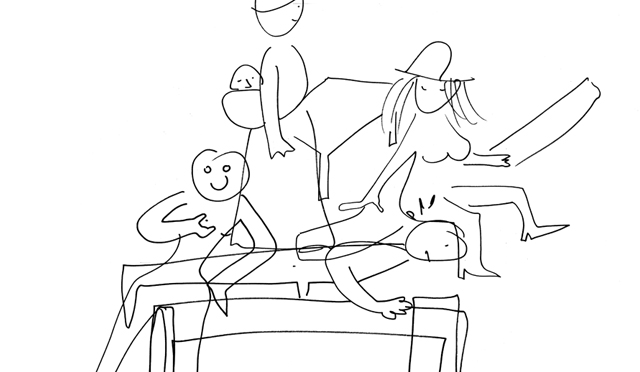Search
To search for an exact match, type the word or phrase you want in quotation marks.
A*DESK has been offering since 2002 contents about criticism and contemporary art. A*DESK has become consolidated thanks to all those who have believed in the project, all those who have followed us, debating, participating and collaborating. Many people have collaborated with A*DESK, and continue to do so. Their efforts, knowledge and belief in the project are what make it grow internationally. At A*DESK we have also generated work for over one hundred professionals in culture, from small collaborations with reviews and classes, to more prolonged and intense collaborations.
At A*DESK we believe in the need for free and universal access to culture and knowledge. We want to carry on being independent, remaining open to more ideas and opinions. If you believe in A*DESK, we need your backing to be able to continue. You can now participate in the project by supporting it. You can choose how much you want to contribute to the project.
You can decide how much you want to bring to the project.
Last Monday and Tuesday, we began the week with cultural critique and art criticism in Latin America. Statements that resounded with the hypothetical need that Graciela Carnevale talked about in a conversation at the ZKM in Karlsruhe: “art has nothing to do with representation, so much as with an action that can interfere in real life”.
Claudio Iglesias apuntaba pointed out how Latin-American art for a long time now has been confronting (not so much in the sense of a fight, as in the sense of dealing with) the ghosts that pursue it: the nature of being mestizo, the place of the foreigner, the influence of colonialism… Historical aspects that interfere in a complex cosmic vision. And that without negating their centrality, generate inescapable ballast, moored to a past that still monopolizes many discourses.
1968 was an effervescent year in various points of the planet. In a sort of global communion, many watched the ties that for decades had been overstretched finally break. In an experimental political and artistic explosion, Tucumán Arde, that Syd Krochmalny also talked about last Tuesday, were the spontaneous demonstration of an independent discourse, of conceptualism liberated from colonial “ballast”, projects projected at political projectiles.
And it’s just that when art moves, when it is agitated – in other terms – Daniela Ortiz and Xosé Quiroga in their project presented at La Capella, 15.518, the friction produces sparks and reconciles this interference in real life advocated by Graciela Carnevale.

A*DESK is a critical platform focused on publishing, training, experimentation, communication and dissemination in relation to contemporary culture and art, which is defined by transversality. The starting point is contemporary art, because that is where we come from and this awareness allows us to go much further, to incorporate other disciplines and forms of thought in order debate issues that are relevant and urgent for understanding our present.
"A desk is a dangerous place from which to watch the world" (John Le Carré)